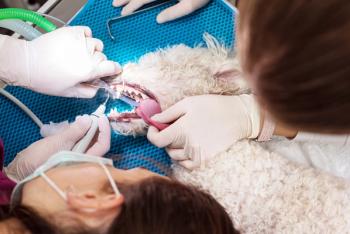
Study may link breast cancer with cattle hormone
Columbus-Animal growth hormones may stimulate estrogen-modulated genes that would enhance growth of breast cancer cells in women, a new study suggests.
Columbus-Animal growth hormones may stimulate estrogen-modulated genes that would enhance growth of breast cancer cells in women, a new study suggests.
Dr. Young C. Lin, a veterinarian at The Ohio State University who isco-leading the study, pointed out that the growth hormone zeranol acts likeestrogen in the body. Zeranol is used to promote growth and improve leanto fat ratios in beef and lamb.
"We have examined the impact of zeranol on the breast tissue ofrats - and on human breast cancer cells, as well," says Lin. "Ourresearch shows that even in very small amounts - levels 30 times lower thanFDA approved limits, zeranol seems to enhance the effects of estrogen."
The study, sponsored by the National Institute of Health, for the firsttime is researching a possible specific link between animal hormones andbreast cancer in women. If it reveals positive results, it could have asignificant impact on the use of growth hormones in cattle, the universitysays.
Lin, of OSU's Comprehensive Cancer Center, didn't hesitate to voice hisconcerns.
"We think this may be important, because some studies suggest thatthe more unopposed estrogen a woman is exposed to over her lifetime, thegreater her chances of developing breast cancer," he says.
His yet-unanswered question remains: Does long-term, low-level exposureto zeranol add to that risk, or not?
It is still too early to label beef products containing zeranol a potentialenvironmental risk, he cautions.
Other universities participating in the research include University ofMinnesota, Texas A&M University, Cornell University and the Universityof California at Davis.
Lin claims that the purpose of the study is not to challenge the legalityof current regulations on the usage of zeranol in food animals, but ratherto offer information that could be useful to regulatory agencies in decisionsabout the use of growth promoters used in beef destined for human consumption.
Newsletter
From exam room tips to practice management insights, get trusted veterinary news delivered straight to your inbox—subscribe to dvm360.




